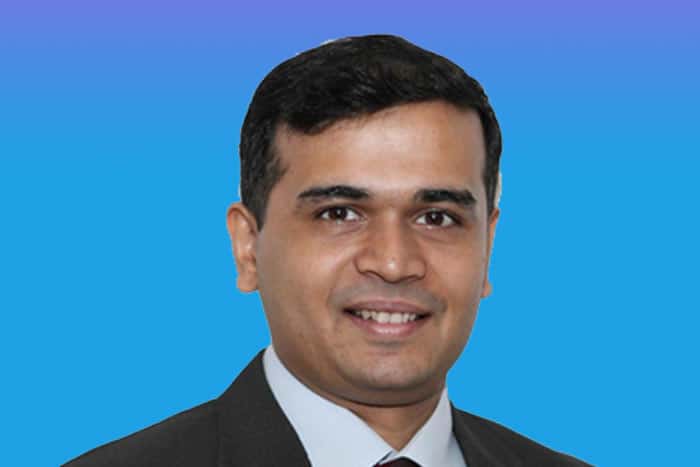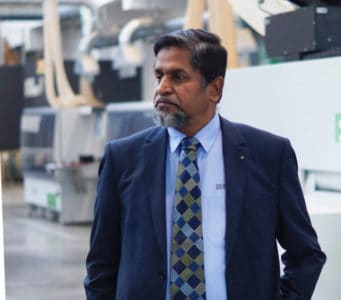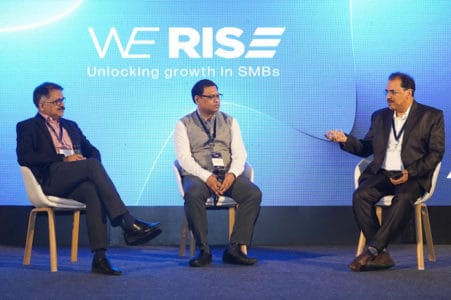A Chat with Nilesh Lele President of CASMB, Mumbai
– By Mithran Sri Ram
In India, SMEs contribute towards nurturing equitable economic growth, but also in employment generation, to reduce regional disparities, and enhance the export potential. Covid has brought new threats to the SME sector with various insuperable challenges, including liquidity crunch, low-motivated workforce and supply chain disruption, adverse effects on import and export perspectives and so on. But Covid 19 has caused massive losses to SMEs and compelling critical actions for the revival.
Mr. Nilesh Lele, President of the Chamber for Advancement of Small & Medium Business, Mumbai, shares their experience handling this arduous task and a road map that helped many entrepreneurs lead to everlasting and triumphant success. Experts from his interview,
Q1. Can you share about your Association CASMB?
We all know that MSME contributes the largest to the job market employing more than 11 crore people, and also contributes to the Indian GDP and especially to Manufacturing Export GDP in India. We realized that during Covid, MSMEs faced more significant problems than some of the larger corporations because of migrant laborers returning to their hometowns due to a liquidity crunch in the financial market, which is why this Chamber was founded. As the name suggests, we were on advancement. We want our MSMEs to advance to the next level from the current one, and we help them in various ways.
The top 3 things any startups and MSEs need are mentorship, Funding & Market Access. We are intentionally working on ensuring the MSEs – especially our members, get access to those. We have our own incubation centre for early-stage startups; we handle them. We also run a YouTube channel where a lot of knowledge-sharing videos are available in which market experts have come to our platform. We share their knowledge not only about all the above three aspects but also on the Finance aspect, the latest technology available, branding, managing human capital and much more in more than 100 videos with us.
We have also done a fundraising activity Fund Plus. In the last nine months, we have done three such events – One in Nagpur in March, one in Mumbai in April & September in Bangalore. Especially Startups looking for SEED or Incubation and equity Funding from investors, more than 60 startups pitched in and were able to succeed.
Q2. How are you Empowering Farmers to become Entrepreneurs?
The way the farmers operate in India is peculiar. They don’t look at their profession as a business. They don’t know about their input cost, financing cost, etc.; We are educating them to understand it. We help them by working out their cost and pricing, and at the same time, they get a good market, particularly the export market. We help them with novel technology available to extend the shelf life of the products so that they get a better realization.
Q3. How are the Global Markets for Plant-Based Food?
Plant-Based food is becoming very popular, gaining much acceptance, especially in the Western World. For eating red meat, we grow plants to feed the animals, we feed the animals, grow them and finally slaughter them for that meat. Now there is no need to do these. This is a thought process. You may think you are eating a chicken or beef burger, but the ingredients are plant-based. It might be soya or pea. You are mimicking the meat by using all the vegetarian sources like the taste, the amino acid profile, the mouth feel, and macronutrients like proteins, carbohydrates, and fats. You are imitating or mimicking all those things using vegetarian sources rather than going for non-vegetarian or slaughtering animals. Already there are two-three startups where I am associated as a mentor, and most of them are currently targeting the US Market for exporting this plant-based food which is becoming popular in the US.
Q4. What is your association’s Role in Institutions & Universities?
A lot of colleges are opting for internships. About 10 + lakhs engineers graduate every year and almost 10 lakhs + engineers in the third year do one month of internship. Effectively there are 10 lakhs months of manpower that has been invested, but what is its output? That is why we make an effort to make this internship fruitful so that it is a win-win. We handhold students to get an internship, fill the skill gap, and help them get jobs if they want to start a startup – we handhold them from the formation of the company and upto taking the products available in the market.
Q5. What is your say on Academic Research?
The Council for Scientific and Industrial Research (CSR) has around 20 + research labs across India. For food, there is PSPR in Mysore, and there are a few more in the food industry. Academic institutes like The National Institute of Food Technology Entrepreneurship and Management(NIFTEM) exist. A lot of research is happening in the institutes, but they are not necessarily reaching the actual end user. We are trying to be a single point of contact. Be it technology providers, Technology seekers, government policies and subsidies, or TNSME in the food industry. Governments and institutions are doing their own part, and startups and MSMEs are doing their own part. Not all the stakeholders can come together, but our Chamber wants to play that role. A whole ecosystem is being created where an MSME can get things done in a single location.
Q6. How do you see Training helping in Capacity Building?
Training is critical as things are changing in this world too fast, particularly in technology. Prior to Covid, there was not much familiarity with zoom or google meets, but now it is not so. Likewise, doing money transactions through UPI. So, Training definitely keeps upgrading our skills, be it technical Training, soft skills training, leadership skills, managerial skills etc.; these are becoming very important for an employee or an entrepreneur. Now, people and companies are realizing its importance as it motivates employees & helps them achieve new skills.
All these things, even people with a non-IT background, are now thinking about how they can use Artificial Intelligence in the food industry and agriculture. These kinds of upgrading skill sets are essential and will come only from Training.
Q7. Do Study Tours get appreciation from Entrepreneurs?
This is uniquely done. In the last two years, we had the Covid era, and we were not allowed to visit factories, do tours, or even travel. From 2020 to 2022, we conducted three factory visits, but they were virtual factory visits. Our small team of 2 videographers with a camera visited a Namkeen manufacturer’s factory in Maharashtra, and people could watch that factory visit in virtual mode sitting at their homes. It was well appreciated and watched by more than 10,000 people. But in addition to that, now our government also offers schemes under the marketing initiative under the Ministry of MSME. Even for the international exhibition, you can get a subsidy of up to 5 lacs, which you can use for your travel, setting up a stall and things like that. We also want to facilitate that for our members.
Q8. What do you say about Digitalization?
Whether we like it or not, we cannot escape Digitalization. Now we were used to virtual meetings. Want for physical Newspapers has mostly gone, and now people are comfortable reading papers online. This is because many changes happened, like internet speed has gone up, and accessibility and availability of the internet have become easy across India. Almost everybody in India has a smartphone now. This is the future – the more digital we go, we grow. We have crossed 2 Billion UPI transactions per month, where even a small shopkeeper going to the bank every day earlier is not going now. Currently, there are few cheque payments or cash withdrawals, and almost all money transactions are done through UPI and other options.
Q9. What are the factors Stopping MSMEs’ growth?
A few reasons are predominant. Most MSMEs are one-man shows. They are stuck in long-core issues like bank-related or non-availability of credits. Secondly, they are unaware of so many things happening or available, like GEM Portal, a government e-marketplace for government tenders, a receivable portal called TReDS, and SAMADHAAN, which is for recovery redressal. Most MSMEs are unaware of such things, which is where the bottleneck is. They are unaware of where they can get the related technology, how they can get cheaper finance, where they can get a good market etc. Ultimately, he struggled to handle his day-to-day issues like labour and electricity problems. These are the two reasons dragging the growth of MSMEs & these are the current limitations for many MSMEs.
Q10. What is your opinion on the global recession and the future of MSMEs?
There is talk about a global recession. That is “two successive quarters of negative growth.” In fact, we don’t see it happening in India because ours will always have positive GDP growth, and we need not worry about recession. We must also understand that a recession will open up many opportunities. India will keep expanding as a larger-scale economy depends on self-consumption, so we need not worry much about what is happening in the rest of the world. But we need to keep one eye on that and the other on what is happening in Russia and Ukraine.
All in all, for India, 2022 – 2023 will be a great year; probably, the whole decade will be great because a lot of the manufacturing sector gets boosted, and a lot of infrastructure is happening. With the improvisation of National Highways, a lot of time is saved on the transportation of materials. Many things will change, and in the next seven years, India will prosper and become the world’s Food Capital.
India can play a big role in terms of the export of food products, export of pharmaceutical products, and exporting a lot of things. Recessions might come and go, but it is part and parcel of the global economy, but actually, India can actually benefit a lot because of what has happened in the last three years.
Few adaptive measures, strategic planning, and innovations in SMEs to counter the pandemic situations are definitely the right way to achieve reasonable sustainability. SMEs require suitable support and guidance by researchers, professionals and practitioners in manufacturing and distribution to develop strategic roadmaps for survivability and sustainability – and this will be the next good step for survival.













